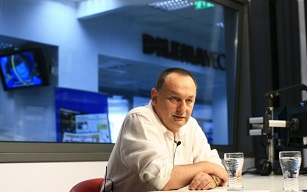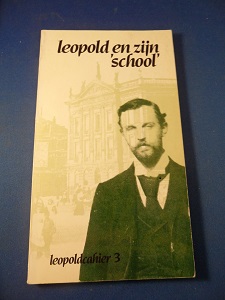De Roemeense schrijver Eugen O. Chirovici werd op 11 mei 1964 geboren in Făgăraș, Transsylvanië, in een Roemeens-Hongaars-Duits gezin. Nadat hij een studie Economie voltooide, werkte Chirovici onder meer als manager van een nationaal dagblad en een tv-kanaal. Hij publiceerde meer dan 1000 artikelen en is de auteur van verschillende non-fictieboeken. Hij is drager van drie eredoctoraten in economie, communicatie en geschiedenis en is lid van de Roemeense Academie van de Wetenschappen. Voor zijn journalistieke werk ontving hij verschillende prijzen. In 2009 werd hem de prestigieuze Kent Medallion toegekend door Prins Edward, de Graaf van Kent. Chirovici schreef bovendien maar liefst tien romans en diverse korte verhalen, voor zowel volwassenen als young adults. Hij maakte zijn debuut in de literatuur met korte verhalen, en zijn eerste roman, “The Massacre”, verkocht in 1990 meer dan 100.000 exemplaren Sinds 2013 wijdt Chirovici zich volledig aan het schrijven. Zijn eerste Engelstalige boek, “The Book of Mirrors”, werd een internationale uitgeefsensatie. De vertaalrechten werden uiteindelijk verkocht aan maar liefst 38 landen.
Uit: The Book of Mirrors
“I received the submission in January, when everybody at the agency was still trying to recover from the post-festive-season hangovers.
The message had deftly missed my junk folder, turning up in my inbox, where it formed part of a queue with a few dozen others. I cast a glance at the query and found it intriguing, so I printed it off along with the attached pages from the partial manuscript and put them in my desk drawer. Busy completing a deal, I forgot about them until the end of the month. It was on the weekend extended by Martin Luther King Day that I rediscovered the papers, lying in a pile of submissions I was planning on reading during the holiday.
The query letter was signed ‘Richard Flynn’ and went like this:
Dear Peter,
My name is Richard Flynn and twenty-seven years ago I majored in English at Princeton. I dreamed of becoming a writer, published a few short stories in magazines, and even wrote a 100,000-word novel, which I abandoned after it was rejected by a number of publishers (and which I myself now find mediocre and dull). After that, I got a job at a small advertising agency in New Jersey and I’ve remained in the industry to this day. At first I used to fool myself that advertising could be likened to literature and that one day I’d go back to being a writer. Obviously nothing of the sort happened. I think that for most people growing up means, unfortunately, gaining the ability to lock your dreams in a box and throw it in the East River. I was no exception to the rule, it’d seem.
But a couple of months ago I discovered something important, which brought back to my memory a series of tragic events that took place in the fall and winter of 1987, my last year at Princeton. You probably know how it is: you think you’ve forgotten something – an event, a person, a situation – and then all of a sudden you realise that the memory has been languishing in some secret room in your mind and that it’s always been there, as if it happened only yesterday. It’s like opening an old closet, full of junk, and all you have to do is move one box or one thing for it all to come crashing down on you.
That thing was like a detonator. An hour after I found out the news, I was still thinking about its significance. I sat down at my desk and, overwhelmed by memories, I wrote. By the time I stopped it was long after midnight and I’d written more than five thousand words. It was as if I’d suddenly rediscovered who I was, after completely forgetting myself. When I went to the bathroom to brush my teeth, it seemed to me as if a different person was looking at me from the mirror.”

Eugen O. Chirovici (Făgăraș, 11 mei 1964)


